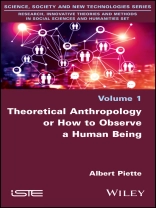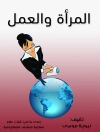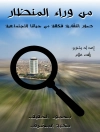It may seem obvious that the human being has always been present in anthropology. This book, however, reveals that he has never really been a part of it.
Theoretical Anthropology or How to Observe a Human Being establishes the foundations and conditions, both theoretical and methodological, which make it possible to consider the human being as a topic of observation and analysis, for himself as an entity, and not in the perspective of understanding social and cultural phenomena.
In debate with both anthropologists and philosophers, this book describes and analyzes the human being as a ‘volume’. To this end, a specific lexicon is built around the notions of volume, volumography and volumology. These notions are further illustrated and enriched by several drawings.
สารบัญ
Preface vii
Introduction xiii
Chapter 1. Theory: Observing the Human Volume 1
1.1. Volume and voluments 1
1.2. The entirety of a volume and the density of presence 9
1.3. Difference and separation 20
1.4. Volumuation and continuity 28
1.5. Lessereity 47
Chapter 2. Illustrating: Drawings of Theory 57
2.1. Drawings and contraspective 57
2.2. Focusing on the human figure 64
2.2.1. Putting into perspective 65
2.2.2. Separation 67
2.2.3. Focusing on the volume 68
2.2.4. Rays 69
2.2.5. Voluments 71
2.2.6. Consistency and style 72
2.2.7. Volugrams 73
2.2.8. Peripheral gestures, presence and absence 74
Chapter 3. Debates: Anthropology and the Human Entity 79
3.1. Experience and existence 81
3.2. Going beyond, wrenching and eccentricity 92
3.3. Lines and flow 99
3.4. Intersubjectivity 107
3.5. Perspections of the individual 115
Chapter 4. Further Development: Structural Existantism 125
4.1. Lévi-Strauss and the difficult ambition of anthropology 125
4.2. A structural approach and the human volume 133
Conclusion 151
Bibliography 159
Index 171
เกี่ยวกับผู้แต่ง
Albert Piette is Professor of Anthropology at Paris Nanterre University in France and a researcher at the Centre for Ethnology and Comparative Sociology (CNRS). He is the author of several books on the epistemology of the social sciences, ritual or religious phenomena, existence and the human specificity.












